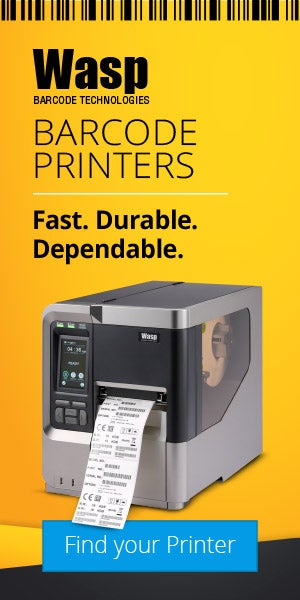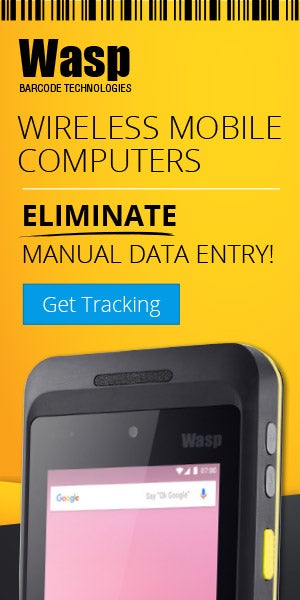Wasp Barcode Technologies: The Barcode Solution People
Tracking Luggage with RFID
Where Are My Bags?
This is the question I found myself asking the baggage claim department when I recently landed at DFW International Airport. The response I was given was somewhat shocking to me. I was told that basically we only know that your bag was scanned in when you checked it in and, other than that, we don't have a status update for you. I couldn't believe that, with all of the technology that the airline industry has, they do not have more visibility into luggage. So, I ended up leaving without my luggage after filling out some paper work and being told that if I had any questions or concerns to call a number on a piece of paper. I thought to myself, "what good is that going to do when they know as much as I do right now?"
Being the barcode nerd that I am, I immediately began to wonder why in the world don't the airlines scan the barcodes at each point of destination? However, as I thought through the logistics of such a system, I quickly realized why the airlines don't do this. To scan the tags on each of the hundreds of bags coming off of every airplane would take up a substantial amount of time. Even if they used fixed barcode scanners along their conveyor system, there would not be an easy way to confirm that the barcode is in the same place on every piece of luggage. This makes barcode scanning in this application impractical, if not impossible.
I thought that a better way to do this would be with
RFID. Now, I'm one of the largest skeptics of RFID mainly because of all the overpromises and myths associated with it that call for the impossible, like changing the laws of physics. However, in this case, RFID makes great sense. First, instead of a plain barcode label on every piece of luggage, the airlines would need to use an RFID label. Then place RFID readers on the doorways to the planes' cargo holds so they will read the bags as they are loaded on and taken off. To verify that the bags were brought into or out of the airport, RFID readers would also need to be somewhere along the conveyor systems within the airports, probably right behind the ticket counter where the luggage first goes in and the gateway where the luggage is brought in from a plane. Lastly, an RFID reader would be placed on the conveyor right before the luggage dumps onto the carousel in Baggage Claim, so they know that the bags were dropped off in the proper place for the passengers to get them. This system would give an immediate update to the airlines' networks of the bags' location, much like a UPS or FedEx package.
If a bag went missing, they could check the last read location and look for the bag there. For instance, the last read location was right behind the ticket counter. It didn't get read by the RFID reader going out to the plane, so it must have fallen off the conveyor system within the airport. Or the last read was coming off of the plane. It didn't make it into the destination airport, so it must have fallen off the baggage handler's trolley and is lying on the tarmac. This would narrow the search field tremendously!
Of course, new RFID readers and tags would mean additional costs to the airlines, but how much money do they waste now on tracking down a piece of missing luggage and then delivering it to the customer? I haven't done an ROI analysis but I would have to think they'd see the ROI within the first year. But the airlines might decide to roll the cost over to us, the travelers. I'm not sure how you feel about it, but I already have to pay $25 for checking a bag and I don't mind paying $1 more so I don't have to ask, "Where is my bag?"
That is my great idea for solving the lost luggage problem. Who knows; maybe the airlines are already looking into this or maybe they will take my "great idea" and run with it. If you're wondering if I got my luggage, yes I did. My doorbell rang at 1:20 in the morning and I finally knew where my luggage was.
 Keith CrockettAdvanced Solutions Product ManagerSystem ID Warehouse
Keith CrockettAdvanced Solutions Product ManagerSystem ID Warehouse
 Keith CrockettAdvanced Solutions Product ManagerSystem ID Warehouse
Keith CrockettAdvanced Solutions Product ManagerSystem ID Warehouse


